March Value of the Month:
To Be Good (德)
It's gonna be a whole lot of fun at Hatching Dragons Nurseries as we explore the profound value of To Be Good (德) in nurturing young minds. Join us on a journey to understand the essence of goodness and how it shapes the foundation of our nursery and childcare services.
To Be Good (德) encapsulates the moral and ethical principles that guide individuals to act with kindness, integrity, and compassion towards themselves and others. It emphasizes the importance of cultivating virtues that contribute to personal and collective well-being.
The Concept of the value To Be Good (德)
At the heart of To Be Good (德) lies the belief in the inherent goodness of humanity and the potential for growth and transformation. It encompasses virtues such as honesty, empathy, respect, and generosity, fostering a harmonious and nurturing environment for all.
History and Philosophical Roots of To Be Good (德)
The idea of To Be Good (德) draws inspiration from a diverse range of philosophical traditions, including the profound teachings of Confucianism, the insightful perspectives of Buddhism, and the foundational principles of Western moral philosophy. Grounded in the exploration of morality, ethics, and virtue ethics, this concept highlights the importance of developing one's character and striving for excellence in moral conduct. It acts as a guiding beacon, illuminating the path towards personal growth and ethical living, encouraging individuals to embody integrity, compassion, and righteousness in their interactions with others and the world around them.
How we can teach our children To Be Good (德)?
Objective:
To help nursery children understand the importance of being kind, good, and considerate towards others in a way that is age-appropriate and engaging.
Introduction:
Start by gathering the children in a circle and telling them that today, you're going to talk about something very special - how to be kind and good to each other, just like friends.
Story Time:
Choose a story or a short picture book that emphasizes the values of kindness and goodness. You might consider using a story like "The Golden Rule" or any other suitable story that promotes good behavior and positive interactions.
Discussion:
After the story, engage the children in a discussion by asking questions like:
- "What did the characters in the story do that was kind?"
- "Why is it important to be good to our friends?"
- "How do you feel when someone is kind to you?"
Encourage the children to share their thoughts and feelings, making it a safe space for open dialogue.
Activities:
- Friendship Bracelets: Provide materials like colorful beads and string to make friendship bracelets. Explain that these bracelets can remind them to be good and kind to their friends.
- Kindness Chart: Create a kindness chart on a large piece of paper where children can put stickers or draw stars whenever they do something kind or helpful.
- Role-Playing: Encourage the children to role-play different scenarios where they can be kind, such as sharing toys, helping a friend, or saying nice words.
Song and Movement:
Teach the children a simple song about kindness, and incorporate movements or actions to make it fun and memorable. Let's Be Kind
Conclusion:
Gather the children once again and summarize what they've learned about being kind and good. Emphasize that being kind to others makes everyone happy.
Home-School Connection:
Send a note or handout with suggestions for parents to reinforce the concept of "德" at home, such as encouraging their child to share, say "please" and "thank you," and be a good friend.
Key Messages:
- "Being kind and good to our friends is important."
- "When we are kind, we make our friends happy."
- "We can show kindness ( 德 ) every day by sharing and helping each other."
By introducing the concept of "德" in this child-friendly way, you'll be nurturing positive values and social skills in your nursery children, aligning with the principles of the Early Years Foundation Stage (EYFS).
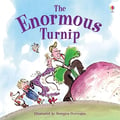
The Enormous Turnip - When the farmer can't pull a turnip out of the ground, he enlists his entire family to help him. In this book, the moral is that it takes everyone working together to unearth the enormous vegetable.|
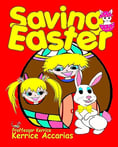 Saving Easter - Kate wakes up really excited that it was Easter. But she can't find Moet her pet bunny anywhere. Kate and her twin brother Luke, look everywhere for Moet. But, they are suddenly transported into Easter Bunny's world. Is Moet here? Where could she be? And why were they here in Easter Bunny's world. Read this exciting Easter story to find out if they find Moet and join them on their adventure with Easter Bunny.
Saving Easter - Kate wakes up really excited that it was Easter. But she can't find Moet her pet bunny anywhere. Kate and her twin brother Luke, look everywhere for Moet. But, they are suddenly transported into Easter Bunny's world. Is Moet here? Where could she be? And why were they here in Easter Bunny's world. Read this exciting Easter story to find out if they find Moet and join them on their adventure with Easter Bunny.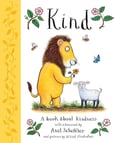 Kind - Imagine a world where everyone is kind - how can we make that come true?
Kind - Imagine a world where everyone is kind - how can we make that come true?
With gorgeous pictures by a host of the world's top illustrators, Kind is a timely, inspiring picture book about the many ways children can be kind, from sharing their toys and games to helping those from other countries feel welcome.
.
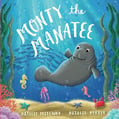 Monty the Manatee - Monty the Manatee is a charming, uplifting tale which explores themes of bullying and friendship and emphasises the importance of being kind. It is a firm favourite of both children and parents across the globe. Meet Monty. He's a big creature with an even bigger heart.
Monty the Manatee - Monty the Manatee is a charming, uplifting tale which explores themes of bullying and friendship and emphasises the importance of being kind. It is a firm favourite of both children and parents across the globe. Meet Monty. He's a big creature with an even bigger heart.Monty's nervous because it's his first day at Sea School. He tries to make new friends but the other sea creatures think he's a bit slow and strange....so they're mean to him and call him names!
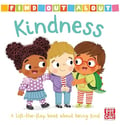
Kindness - Find Out About: Kindness helps busy preschoolers learn about their interactions with others as they start to experience nursery, school and the wider world. Featuring friendly child characters and familiar situations with siblings, friends and family, they will learn to empathise and socialise others. With fun flaps to lift, this is an excellent book for children and parents to share together.
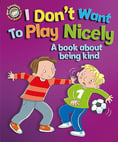
I Don't Want to Play Nicely - Finn struggles with caring for other children at school. He can be selfish and he often plays too aggressively. When the other children complain, Mr Hare has an idea. He chooses Finn as the buddy for Jake, a new boy at school. However, Finn does not help Jake, and the other children become really upset with Finn for being so unkind. Finn is soon left out by the other children and is left feeling miserable and lonely. Can Mr Hare help Finn find a way to make it all better?
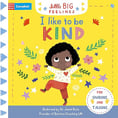
I Like to be Kind- I Like To Be Kind is a fun introduction to the benefits of being kind to others. Young children can lift the flaps, slide the tabs and turn the wheel as they explore what kindness is, the emotional effect of being kind and ways in which they can show kindness.
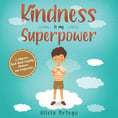
Kindness is my Superpower - This charming story with peaceful rhymes and colorful illustrations will explain to your child that it is okay to make a mistake and say I’m sorry. Lucas will teach your child good manners and positive behaviour at home, at school, in the store, and on the playground.
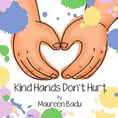 Kind Hands Don't Hurt - Touch and sight are the most influential way a child absorbs the environment and learns to interact with others. Behaviours of parents, carers and family members can sometimes reinforce unkind traits that a child will often model or may be affected by. This beautiful picture book for young and first readers is a perfect way to share the message that "Kind Hands Don't Hurt", and will instil reassurance to a child who has experienced "unkind hands". This book can also be used as an interactive session on all the wonderful things your kind hands can do.
Kind Hands Don't Hurt - Touch and sight are the most influential way a child absorbs the environment and learns to interact with others. Behaviours of parents, carers and family members can sometimes reinforce unkind traits that a child will often model or may be affected by. This beautiful picture book for young and first readers is a perfect way to share the message that "Kind Hands Don't Hurt", and will instil reassurance to a child who has experienced "unkind hands". This book can also be used as an interactive session on all the wonderful things your kind hands can do.
Kindness Makes Me Stronger - Spending a time on grandparents' farm little Nick meets new friends – funny animals that don't behave nicely. Having faced a great challenge our little hero manages to teach his new friends the power of kindness, caring and compassion.
Conclusion
In conclusion, the value of To Be Good (德) serves as a guiding principle in our nursery and childcare services, shaping the character and moral development of young children. Through meaningful activities and intentional teachings, we strive to instil the virtues of kindness, integrity, and compassion, laying the foundation for a brighter and more harmonious future. Join us in nurturing goodness in the hearts and minds of our little ones as they embark on their journey of growth and discovery.
Tags:
Parenting Tips, Value of the Month, Moral Character, Behavior, Spread Kindness, To Be Good, Kindness, Good and Kind
29-Feb-2024 22:25:27
Related Articles

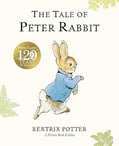
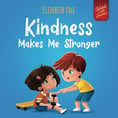
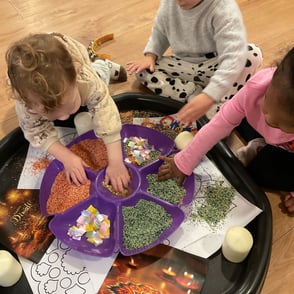


Write a Comment